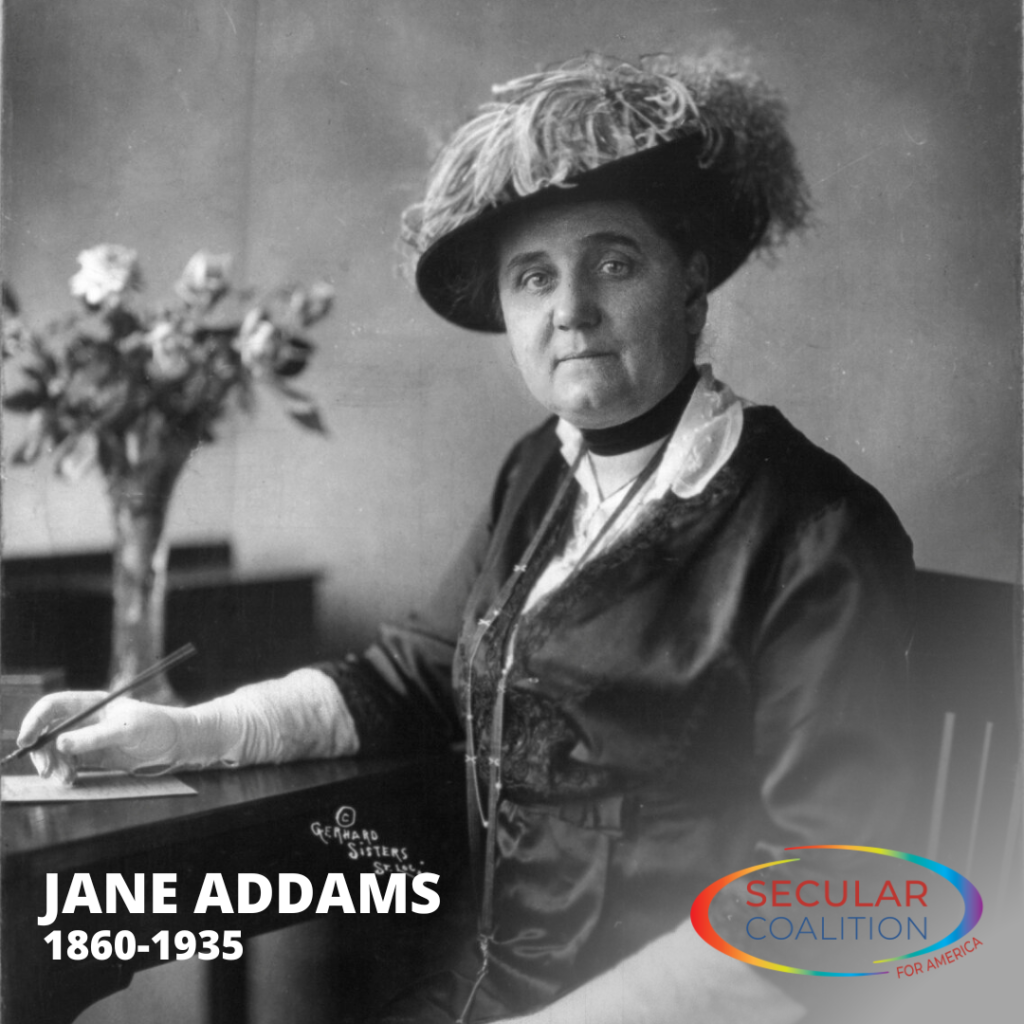Throughout the month of June, we will be sharing information about historic American figures who were involved in both secular and LGBTQIA+ spheres.
Jane Addams (1860-1935) was a pacifist and feminist activist, an international humanitarian, and a Nobel laureate. The social settlement she co-founded and ran, Hull-House, was an early institution of secular community service, and she had multiple long-term relationships with other women throughout her life.
Born in Cedarville, Illinois, Addams grew up during the peak of “social Christianity,” a Christian movement that taught social responsibility through community service. But while Addams’s religiosity declined during and after her studies at the Rockford Female Seminary (where she graduated valedictorian in 1881), her commitment to service only grew.
Hull-House, founded by Addams and Ellen Gates Starr in Chicago in 1889, was a decidedly secular alternative to similar “social settlements” being established around the country (and the world) at the time. Addams described the mission of Hull-House as “to provide a center for a higher civic and social life; to institute and maintain educational and philanthropic enterprises and to investigate and improve the conditions in the industrial districts of Chicago.”
In practice, this meant that the educated women who lived at Hull-House provided a myriad of social services to the community without a religious influence, including kindergarten and day care programs, English and citizenship classes for neighborhood immigrants, a job-placement bureau, a boarding school, and a labor museum.
Among the early trustees of Hull-House was Mary Rozet Smith, who had financially supported the settlement’s growth and would become Addams’s long-term partner. The two would spend the rest of their lives together, traveling and owning property together and referring to each other as if they were married.
In the twentieth century, Addams would steadily broaden the scope of her activism. On a national scale, she advocated strongly for progressive causes including women’s suffrage and ending child labor, and was a founding member of both the ACLU and NAACP. She became an international peace activist during World War I, founding the Women’s International League for Peace and Freedom, for which she served as president until 1929. For her activism, she was awarded the Nobel Peace Prize in 1931.
By the early 1930s, the pair’s health had been steadily declining. Mary Rozet Smith died in 1934 of pneumonia, and Jane Addams would die of cancer one year later in 1935. In her obituary, the New York Times lauded her as a “friend of the poor and foe of war,” paying tribute to the monumental legacy her work has left behind.


